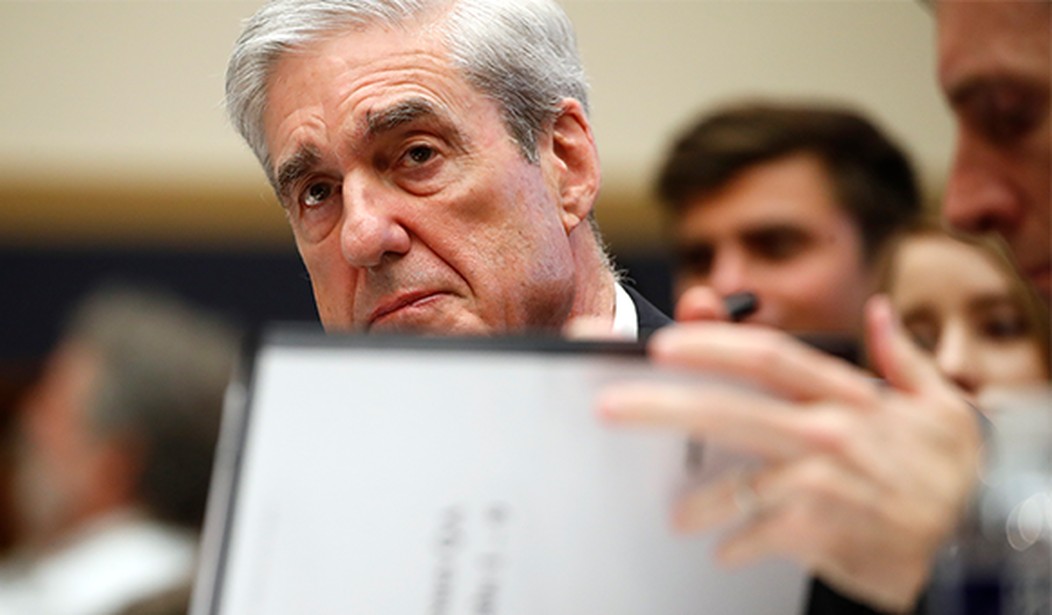This is my fourth and final dive into Jeff Gerth’s 24,000 review of the Russia collusion story that was a media obsession for the majority of Trump’s presidency. Part one was mostly about how Hillary Clinton and Fusion GPS got the collusion story started. Part two focused on the publication of the Steele dossier and some of the many stories that followed leading up to Trump’s firing of FBI Director Comey. Part three dealt with the aftermath of Comey’s firing and the NY Times’ efforts to spin the story, always making it appear more serious and more credible than it was. It was a narrative that paid off for the Times and the Post who shared a Pulitzer for their coverage of the story.
The final part of the story picks up with Trump’s meeting with Putin in 2018.
Trump, in July 2018, finally had a summit meeting with Vladimir Putin, the man he mistakenly claimed in 2015 to have met years earlier and his supposed puppet master, according to Steele’s dossier…
At a press briefing, the final question was whether US intelligence or Putin should be believed with regard to meddling in the 2016 election. After going on a tangent about the server at the DNC, Trump said, “I don’t see any reason why it would be” Russia that did it. Then, a bit later in his answer, he expressed “great confidence in my intelligence people.”…
Rachel Maddow, the MSNBC host, saw the day’s events as affirmation of her having covered the Trump-Russia matter “more than anyone else,” because, as her blog pointed out, Americans were now “coming to grips with a worst-case scenario that the US president is compromised by a hostile foreign power.”…
In the aftermath of the summit, Trump’s critics believed the worst. A Yougov/Economist poll found that two-thirds of Democrats were definitely or somewhat sure that “Russia tampered with vote tallies in order to get Donald Trump elected.”
Needless to say, nothing remotely like this ever happened but the media had spun up the collusion story to such a degree that many people simply believed it must be the case. The media seized on a paltry sum spent on US social media by a Russian group called the Internet Research Agency (IRA) as proof the election had been hacked.
To help buttress its sweeping conclusion, the Times wrote that the Facebook posts by the IRA had an “eventual audience of 126 million Americans,” describing that as an “impressive” reach that almost matched the numbers of voters in the election…
Gareth Porter, a veteran journalist and historian, called the Times’ description of the IRA’s “eventual audience” of 126 million “bogus” because Facebook had told Congress, and reporters, months earlier that the figure was only a potential audience for IRA content over two years, including nine months after the election. When Facebook CEO Mark Zuckerberg testified, several months before the piece, he said “approximately 126 million people may have been served content” from the IRA.
Facebook data submitted to Congress about the IRA’s ads on its site further diminished their impact: more than half of the impressions associated with the IRA’s Facebook ads came after the election…
Porter, writing in Consortium News, said the Times’ use of the 126 million audience number, plus the piece’s failure to reflect that Facebook users were exposed to 33 trillion news feeds during the relevant period, “should vie in the annals of journalism as one of the most spectacularly misleading use of statistics of all time.”
Court filings in 2019 showed that the total value of the IRA’s Facebook ads that were deemed election-related amounted to $2,930, in a political cycle where billions of dollars were spent. The only reporter to write about that finding was Sperry, of Real Clear Investigations.
Just like the false but widespread claims that Russia had tampered with vote tallies, the claims about Russia’s online influence over the election were widely believed by Democrats.
A study by Rasmussen in April 2022 found that 47 percent of voters, including 72 percent of Democrats, think Russian interference likely changed the outcome of the 2016 race.
So given all of the years of build-up on this and other collusion related topics it’s understandable how the Mueller report turned into a terrible disappointment for most Democrats. They were expecting Mueller to finally take Trump down and what they got was a “fizzle.”
The Democrat-controlled Congress…decided to push a reluctant Mueller to come testify himself, hoping he might help make their case.
Mueller appeared in late July before the House Judiciary Committee. Schmidt was contemporaneously posting analysis on the Times website about Mueller’s testimony. At just past eight in the morning, he signed in: “Can’t wait to hear Mueller talk about Volume II on obstruction.” As Mueller began answering questions, Schmidt noted how he kept asking for them to be repeated. Then a few hours later, he posted this: “the Democrats say it was indeed obstruction and Mueller declines to back them up.”
Mueller’s “halting” testimony, as noted by the Times and many other outlets, was likely the final chapter in his lengthy public life.
Woodward told me the Mueller report was a “fizzle” but reporters were “never going to declare it’s going to end up dry.”
There’s a lot more but those are some of the highlights. I think the piece overall presents a pretty clear image of left-leaning media outlets who went all in on a story that repeatedly failed to live up to the hype. The media, especially the NY Times, comes off looking like a bunch of partisan hatchet men pursuing scalps and prizes rather than neutral reporters trying to get to the truth.








Join the conversation as a VIP Member